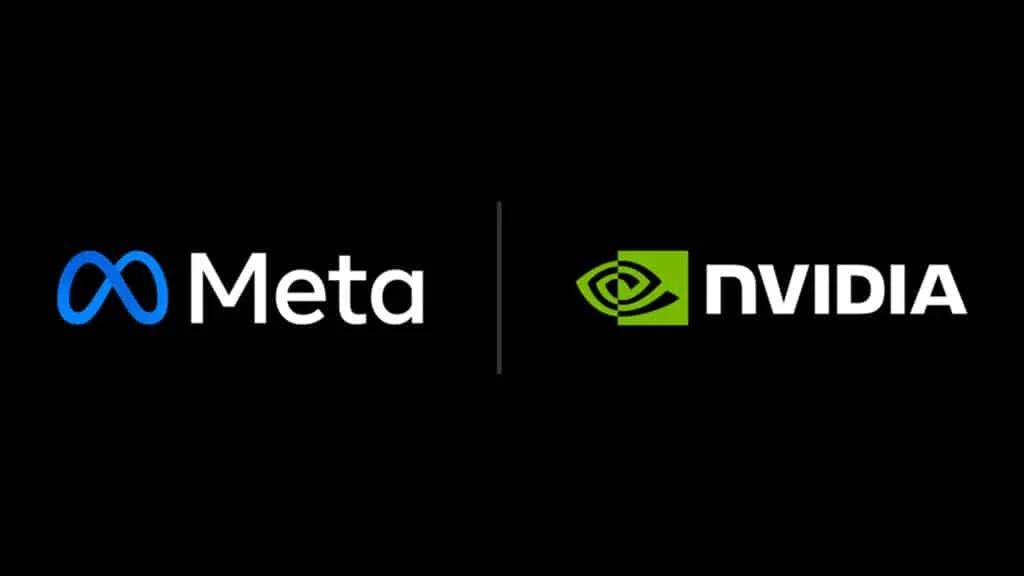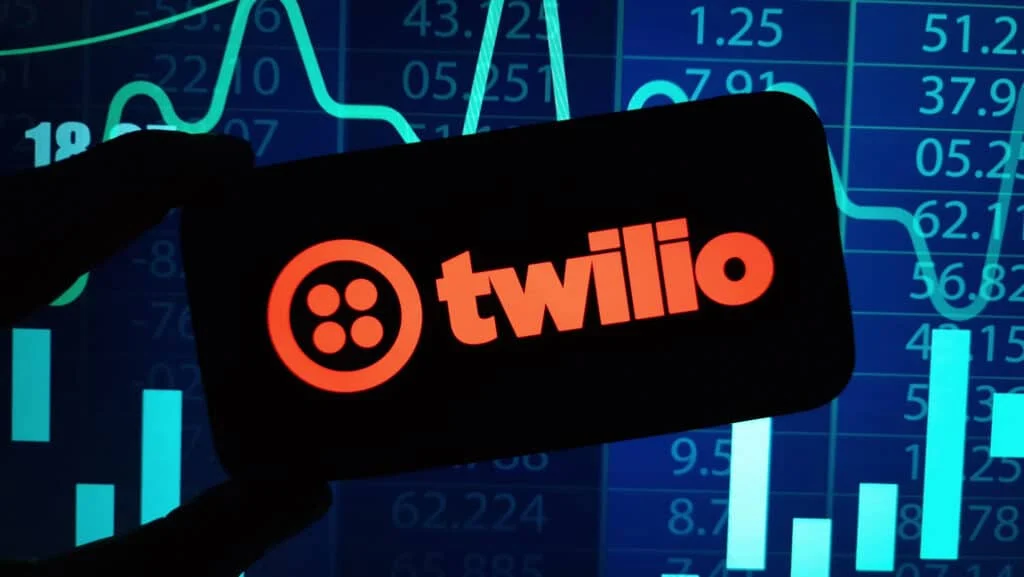The Six Five team discusses Meta Q1/24 earnings.
If you are interested in watching the full episode you can check it out here.
Disclaimer: The Six Five Webcast is for information and entertainment purposes only. Over the course of this webcast, we may talk about companies that are publicly traded and we may even reference that fact and their equity share price, but please do not take anything that we say as a recommendation about what you should do with your investment dollars. We are not investment advisors and we ask that you do not treat us as such.
Transcript:
Daniel Newman: So Meta had a really good quarter, Pat, as a whole, and overall they came off beating on the top, beating on the bottom, and at the same time the stock absolutely tanked as a result. I’m not talking about a little bit, I’m talking about double digits. At its worst, it was down over 100 bucks, wiping out all of the company’s gains year to date or within the last several months. It was incredible, but at the same time, the results of the company were, Pat, my take very, very strong. So, Meta grew its business, it grew its top line, it grew its advertising, it beat its earnings, but what did they do wrong? What did they do wrong? Can I-
Patrick Moorhead: Do you want me to answer the question?
Daniel Newman: Of course I want you to answer the question. I was having fun.
Patrick Moorhead: They basically talked about how much money that they were going to spend on stuff that the street’s not convinced will generate short-term returns like AI and the Metaverse.
Daniel Newman: Once again, Mark Zuckerberg talked about some big vision. He had to spend money and everybody lost their freaking minds. And by the way, are you starting to see kind of the cycle here though? It’s like for a period of time he’s going to invest and then the growth will come. Now, Reality Labs has been nothing but a dump right now. It’s billions and billions of spend, but the rest of the business is so stinking profitable that it just continues to absorb it. The company delivered 4.71 a share of earnings on 36 billion of revenue… Like I said, an average guide, by the way, just a slight off-guide, and a lot like Microsoft, just slightly off the guide, mentioned a huge plan to spend more money, which means buying lots and lots of GPUs. Now, you do know they are building XPUs as well.
So, some of that spend may not all be on NVIDIA, for those out there that want to make that correlation, a lot of people do, but they’re going to buy a lot of NVIDIA, no doubt about it. The company basically saw such a rampant growth in value over the last several quarters, because they cut a lot of costs. They got rid of a lot of people. They cut 21,000 jobs in the first half of 2023, but having said that, the company also has some benefit coming from a potential TikTok ban. Nobody really wants to talk about that, but I have to say that in my mind there is not a bigger beneficiary if TikTok actually gets banned… And now again, we’re not going to talk about that in its entirety on the show, but we’ll talk about that philosophically on the show. Does anyone benefit more than Meta if TikTok… Meta Reels and Instagram and regular Facebook, where do the kids go? Snap? Is that even still a thing? I’m kidding, I think-
Patrick Moorhead: My kids are off Snap.
Daniel Newman: Are they? But your kids are like adults. All your kids are old, you’re old, boomer, you boomer. But anyway-
Patrick Moorhead: Dan, we call it experience now. I will never hold your lack of experience against you, Dan, at your young age.
Daniel Newman: I don’t believe that. I’ve seen you do it already. It’s happened.
Patrick Moorhead: I’m pretty sure you’re a vampire. I saw a picture of you from 15 years ago. I think that’s what they use on Bloomberg, and you look exactly the same. Dude-
Daniel Newman: I would argue I look better. I fixed my teeth. I got my teeth fixed.
Patrick Moorhead: I was very different 15 years ago.
Daniel Newman: Well, I jokingly tell people all the time is you looked 40 at 20, then you still look 40 or 40. I said, “I’m not sure how the next 20 years will go,” but when you lose all your hair so young, it aged me superfast and now I’m just growing into it.
Patrick Moorhead: Having kids early will age you.
Daniel Newman: Yes, and by the way, Botox can do all kinds of wonders. I’ve only done Botox once, but it can get rid of some of this crinkling I’ve got going on up here.
Patrick Moorhead: I just sandblast my face, so it works.
Daniel Newman: What’s that Kardashian stuff they inject? They inject your blood, they cycle it out, and anyways, if you want to really go off-topic, I read a thing that some New Mexico clinic was doing that for its customers, and they actually gave people HIV, because they didn’t treat the blood. There’s like two cases now. I was reading about this yesterday. So anyways, be careful with what you’re doing out there in cosmetic and where you do it. Maybe it’s cheaper to do it in El Salvador, but you might want to go ahead and pay to have it done… Maybe not in New Mexico either.
All right, but back to Meta. Hey, Pat, here’s the biggest thing I just wonder is really is Mark Zuckerberg does need to tell people how he actually plans to make money from AI. The only thing I thought he really missed, because the people I think were frustrated about the continued expense and the growth and they wish that the AI expenditure was all there, but we’re going to keep spending and they’re going to keep growing and that’s fine. And I listened to parts of the earnings call, he was fumbling to kind of explain where we make more money.
And I think where you make more money is you create a lot of efficiencies, you get more targeting, and you can charge more premiums for ads. Now, the last thing I’ll say is I love what they’re doing with Llama 3. I love that on a 70 billion parameter model, they’re competing with the top GPT models and they’re open sourcing everything. Who freaking thunk that Meta would be the company to go all open? They got the horizon now. They’re going to be the open company for AI and they’re going to be the open company for VR? They are the un-Apple. I guess Zuck and Cook are… I guess maybe we’ll see Zuck in the octagon. Did you see that? Was that a real picture of him, by the way, with the chain and the curly fro or was that like… That’s real?
Patrick Moorhead: No, no, that was real.
Daniel Newman: I didn’t know if that was AI generated, but anyways.
Patrick Moorhead: He did one with a fake beard, that was, but his hair in one of them was real.
Daniel Newman: Oh, it was real?
Patrick Moorhead: Yeah.
Daniel Newman: Dang. All right, looking good, Mark, looking good. All right, I’ll pass it back to you.
Patrick Moorhead: I don’t cover them as a consumer play, but there’s a couple of things I want to point out. I freaking love Zuckerberg thumbing the nose at Wall Street. And by the way, the way his shares are spec’d and the voting rights, he runs that company and investors are along for the ride. And my gosh, we saw the stock plummet when it was doing the Metaverse. He pulled back, laid off a ton of people. He didn’t pull an Elon with X, but he realized the efficiencies he could get and the lights still were on, and they crushed it on ads and his stock went up and then he was out of the dog house and he’s a freaking genius.
So, the play that he’s running with AI is a long-term play. It’s very similar to what he did with open compute project, which was let’s get the entire industry to standardize on hyperscale infrastructure and what did that do? It democratized designs and it meant that the big players wouldn’t have even a bigger advantage over everybody else, that was one point. And then there’s PyTorch, which essentially Facebook invented, and what that did is it gave you an open source option versus what was going on in a closed environment at Microsoft and Google. And so, here we are in generative AI where you might have to spend $1 billion to train a giant LLM.
And here we have Meta coming in and democratizing that, so OpenAI, and Google, and Microsoft’s proprietary models, they don’t run away with everything. So, let’s get a ton of developers on PyTorch, let’s get a ton of developers on Llama, and away we go, and that is not cheap. You’re talking about 30,000 NVIDIA H100s for an extended period of time to train this bad boy, prune the data in the right way, and deploy it. So here we are. I got to tell you, I’ve got to give the benefit of the doubt to Zuck on this. The guy’s a builder. He’s not a politician, he’s a fricking builder, and I love thumbing the nose to Wall Street, and if I could direct invest, I’d probably go along.
Daniel Newman: He did sell a lot of stock recently though, so I wouldn’t say insider, but he maybe knew what he was going to say this quarter.
Patrick Moorhead: He’s got to schedule that a year in advance-
Daniel Newman: No, he does, I’m not saying he sold it. I’m just saying he knows the ebbs and flows, so he’s finding that out.
Author Information
Daniel is the CEO of The Futurum Group. Living his life at the intersection of people and technology, Daniel works with the world’s largest technology brands exploring Digital Transformation and how it is influencing the enterprise.
From the leading edge of AI to global technology policy, Daniel makes the connections between business, people and tech that are required for companies to benefit most from their technology investments. Daniel is a top 5 globally ranked industry analyst and his ideas are regularly cited or shared in television appearances by CNBC, Bloomberg, Wall Street Journal and hundreds of other sites around the world.
A 7x Best-Selling Author including his most recent book “Human/Machine.” Daniel is also a Forbes and MarketWatch (Dow Jones) contributor.
An MBA and Former Graduate Adjunct Faculty, Daniel is an Austin Texas transplant after 40 years in Chicago. His speaking takes him around the world each year as he shares his vision of the role technology will play in our future.







